Last year, my wife and I visited (in a professional capacity) friends who at that time lived in a high-rise apartment building in Marrakesh. They showed us quite a bit of the city, and I of course was on the lookout for birds. But there isn’t that much to see in urban Marrakesh, and my total list for that part of our trip was 10 species, including four lifers.
This year, when we went back to visit them again, they had moved to Tameslouht, a much more traditional and smaller village about a half hour outside Marrakesh. The town has about 1/150th of the population of that city, so one is never far away from the edge of town. And while, once again, birding was not the purpose of this trip, I made sure to walk the fields around the town. I was not disappointed, as this time I saw double the species, with three more lifers for good measure.
Most of the land around Tameslouht is rocky and bare, with scattered goat-proof small shrubs. But there are also olive groves, and some native trees. The birdiest spot was the town trash dump. But there was some avian activity wherever plants were to be found. (Having said that, the site reminded me in the desert, trash is eternal. In this town, “trash dump” is only a matter of degree.)
In the Marrakesh area, you are never very far from feral Rock Pigeons, Cattle Egrets, and the somewhat more exotic Spotless Starlings and Common Bulbuls. Morocco’s iconic (and charming) House Buntings are of course also present. When you are on a city street, you’re likely to see a House Sparrow. But as soon as you walk onto a field or take a dirt road, the Sparrows turn Spanish.
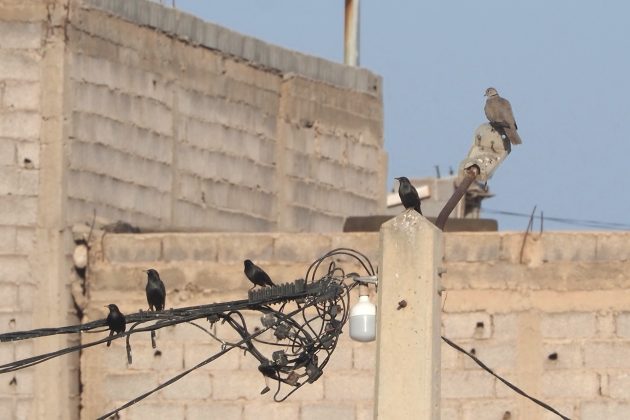
Spotless Starlings, and a Eurasian Collared Dove
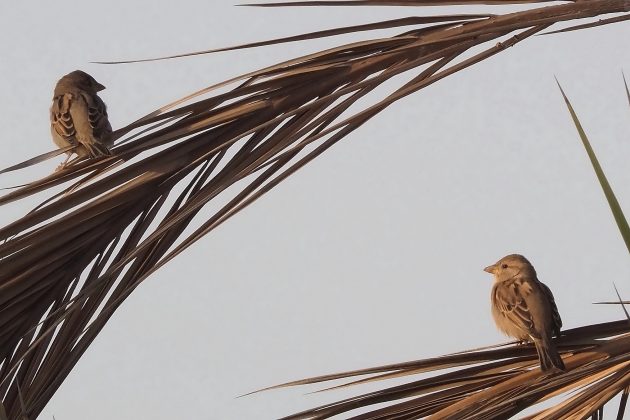
Spanish, not House, Sparrows. Trust me. (You can see a male Spanish Sparrow in the photo above this post. The streaky breast proves that identification.)
This time in Morocco, I saw several other species I already knew from Spain: Thekla’s Lark, Sardinian Warbler, European Stonechat, and White Stork. The Great Grey Shrike I knew previously from Turkey, and the Common Chiffchaff, Laughing Dove, White Wagtail, and European Blackbird from multiple countries.
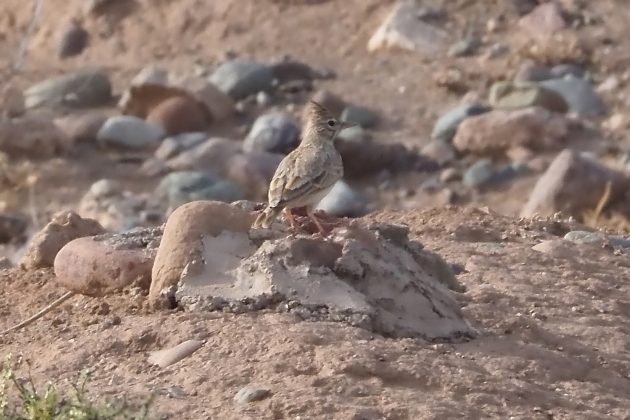
Thekla’s Lark — unless it is an almost-identical Crested Lark
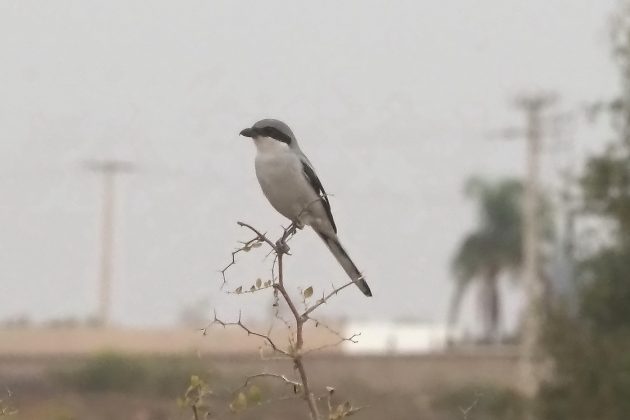
Great Grey Shrike
But then I got to meet some genuine African specialties. The Moussier’s Redstarts were easily the showiest birds I saw. African Chaffinches are not so different from Eurasian Chaffinches, but get extra points for having the word “African” in their name.
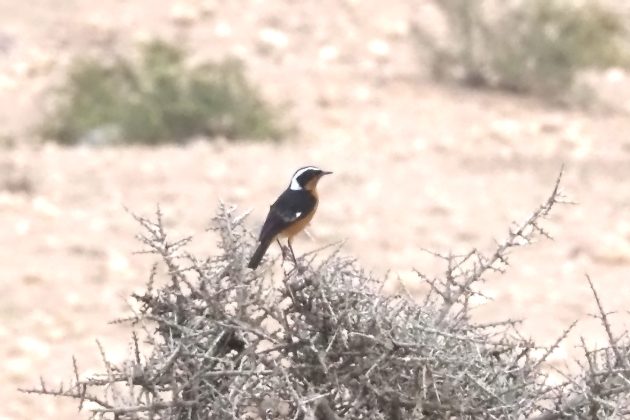
Moussier’s Redstart
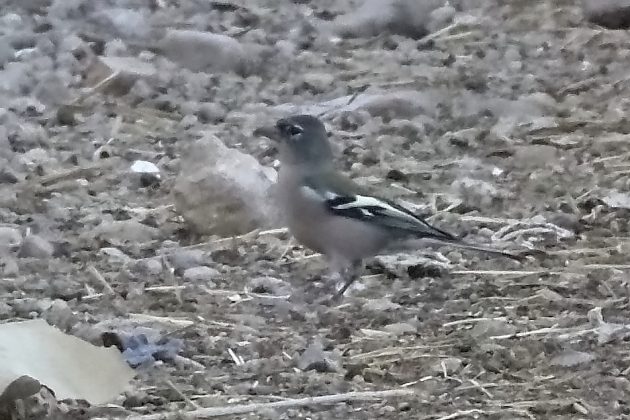
African Chaffinch
Perhaps the most intriguing bird I saw was a falcon that flew overhead in a straight line, with strong, steady wingbeats. The only photo I managed (with my Olympus travel camera, which I have yet to master) showed very pointed wings, and the appearance of dark under wings and breast, contrasting with a much lighter abdomen. I suspect this may have been a Lanner Falcon. Would any experts out there like to comment on this below?
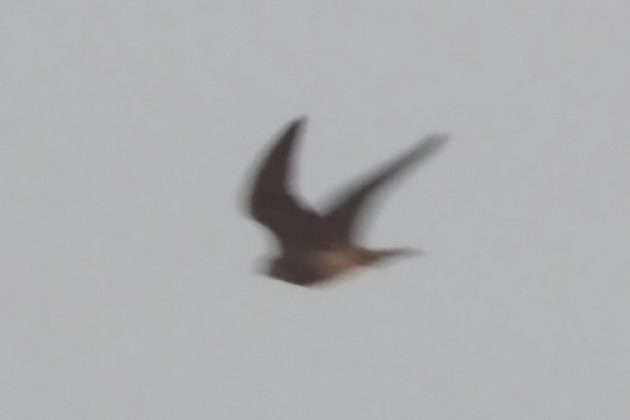
Not having had the mobility to travel to, say, a body of water or a highland forest, my species total for Morocco (26, after two trips) is still not that big. But I did increase my list from 10 to 26 species, with just a few hours of birding. And there are definitely some interesting birds to be seen, with just a brief foray outside of the city of Marrakesh. And while I wouldn’t say nature looks well-cared-for here, one might stumble on unexpected beauty, like this wonderful wall painting on a crumbling adobe wall in a random field:
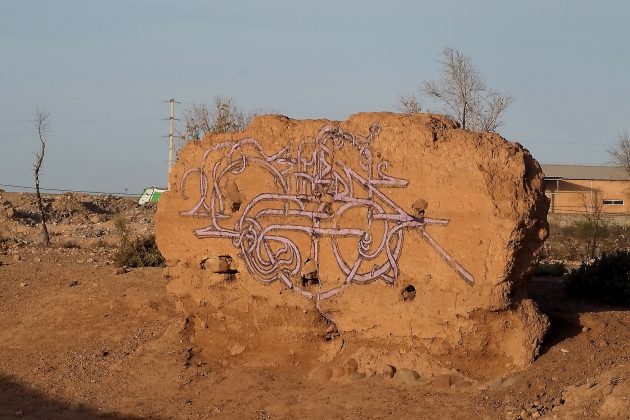
Source link


